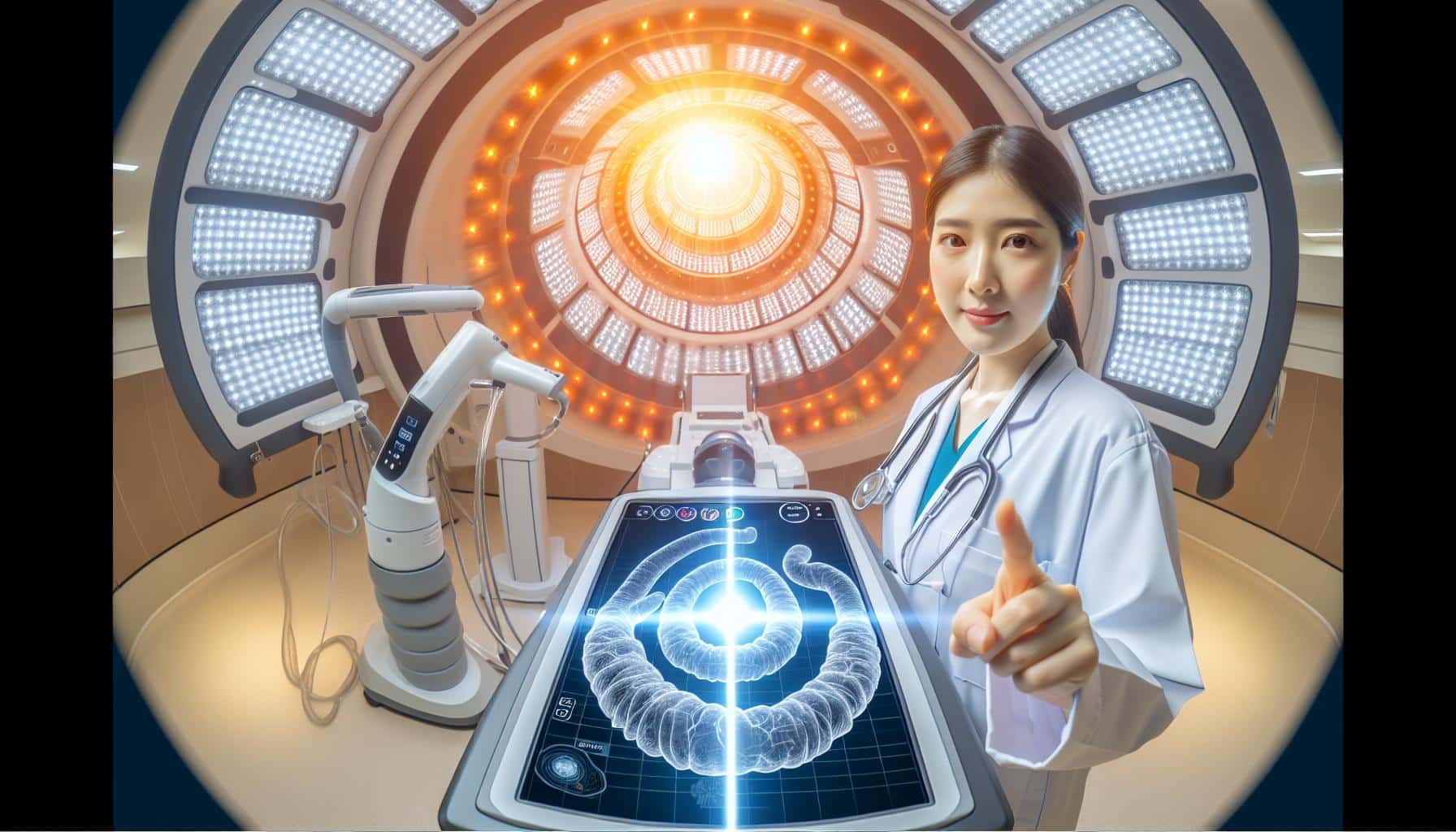Advancements in AI for GI Endoscopy: A Review of the Latest Developments
Gastroenterology endoscopy, a field dedicated to the study and management of diseases of the digestive system, has seen significant advancements in recent years, thanks to the integration of artificial intelligence (AI) technology. Dr. Sharma, a renowned physician and educator, has been at the forefront of these developments, particularly in the areas of gastrointestinal (GI) diseases and cancer. In this article, we will review the latest advancements in AI for GI endoscopy, highlighting the contributions of Dr. Sharma and his colleagues.
AI has emerged as a game-changer in the field of medicine, with its ability to analyze large amounts of medical imaging data quickly and accurately. In the context of GI endoscopy, AI has been leveraged to improve both diagnosis and management of various conditions. Dr. Sharma’s research has focused on several key areas, including gastroesophageal reflux disease (GERD), Barrett’s esophagus, advanced imaging techniques, and endoscopic treatments.
Improving Diagnosis and Management of GI Diseases: The Role of AI in Endoscopy
AI has shown great potential in improving the diagnosis and management of GI diseases. For instance, computer-aided detection (CADe) systems have been used to enhance the detection rate of abnormal growths during colonoscopies, without significantly increasing procedure duration. This technology has proven to be extremely valuable in identifying lesions that may otherwise be missed, thereby improving patient outcomes.
Another area of focus for Dr. Sharma has been the use of AI in assessing the cleanliness of the bowel before a colonoscopy. The cleanliness of the bowel is crucial for accurate examination and can influence recommendations for future check-up procedures. By applying deep learning techniques, AI algorithms have been able to accurately assess bowel cleanliness, ensuring better quality colonoscopies.
How AI is Revolutionizing Gastroenterology: A Look at Recent Innovations
AI has also revolutionized the field of gastroenterology through recent innovations. In the upper digestive tract, CADe systems have been developed to aid in the diagnosis of a condition called Barrett’s neoplasia. These systems assist doctors in accurately identifying and classifying abnormal tissue growth during endoscopy, leading to earlier detection and improved patient outcomes.
Furthermore, AI-assisted real-time endoscopy has been found to reduce blind spots during examinations of the upper digestive system. By analyzing live images and providing real-time feedback, AI algorithms enable doctors to comprehensively evaluate the entire gastrointestinal tract, improving the accuracy and completeness of the examination.
Enhancing Detection and Diagnostic Accuracy: The Impact of AI in GI Endoscopy
The use of AI in GI endoscopy has significantly enhanced the detection and diagnostic accuracy of various conditions. By leveraging AI technology, doctors can more effectively identify and classify abnormal growths, resulting in earlier detection and intervention. This can lead to improved patient outcomes, with potentially reduced mortality rates for conditions such as gastrointestinal cancers.
Furthermore, AI-assisted analysis of medical images allows for better characterization of lesions and improved understanding of their malignant potential. By providing additional information about tumor features, AI algorithms can assist doctors in developing personalized treatment plans and monitoring disease progression.
The Promising Future of AI in Gastroenterology: Key Findings and Potential Applications
The advancements in AI for GI endoscopy have shown great promise, but further research is needed to fully understand their potential. While Dr. Sharma’s work has demonstrated improved detection rates and diagnostic accuracy, studies involving multiple medical centers and randomized patient selections are required to validate these findings.
Looking ahead, the future of AI in gastroenterology holds immense potential. AI algorithms may play a crucial role in developing predictive models for disease outcomes, guiding treatment decisions and improving patient care. With continued advancements in AI technology and ongoing research efforts, the integration of AI into routine clinical practice in gastroenterology appears to be on the horizon.
In conclusion, Dr. Sharma’s pioneering work in AI for GI endoscopy has significantly advanced the field, particularly in the areas of diagnosis and management of GI diseases. By leveraging AI technology, Dr. Sharma and his colleagues have improved detection rates, diagnostic accuracy, and treatment planning for various conditions. As AI continues to evolve, its integration into routine clinical practice in gastroenterology holds immense promise for improving patient outcomes and revolutionizing the field.
Analyst comment
As an analyst, I believe this news is positive for the market. The advancements in AI for GI endoscopy have the potential to greatly improve the diagnosis and management of GI diseases, leading to better patient outcomes. This technology has shown promise in improving detection rates, diagnostic accuracy, and treatment planning for various conditions. With further research and development, the integration of AI into routine clinical practice in gastroenterology appears to be on the horizon, which could revolutionize the field and create new opportunities for market growth.













